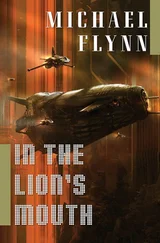‘You can’t.’
‘Teresa, you are my wife. You married me in a church with God looking at us. You know what that means.’ He walked over to her, caught hold of the back of her head as she swayed backwards and kissed her sweating forehead. ‘Make sure he’s here on Friday evening. That’s all.’
Will decided to linger another day. There was a reason for this but it couldn’t be admitted, even to himself. He kept the reason as deep and invisible as a river current, known only by the darkly streaming weed or turning froth. He walked out into the streets of Palermo.
He walked among buildings and ruins and intermittent churches. In places, sunshine reflected from liquid filth moving sluggishly in the drains. After his pickpocketing, Will was wary of the quick, skinny children and the watching adults. There was too much movement, too many people here. Much as he’d tried to convince himself otherwise, Will had never liked London for the same reason. He turned a corner and saw a man aiming a gun up at a window. Will started to intervene. ‘I say!’ The man fired and a pigeon tumbled down. It bounced then lay there, swatting its wings against the paving stones as it died. A man brushed past Will’s back on a bicycle.
Will took refuge in a café. On the small circular table in front of him, he placed his Lucretius to refresh his Italian. He opened the book to read of the strength in the frenzy of Venus which was not what he wanted to think about presently. Instead, he sat like a spy and observed. At a certain hour the place filled with Sicilians. Sicilian men: no women entered. Perhaps to be a woman in such a place was to put your reputation in as much jeopardy as a lone woman in a pub back home. The men were short and intimate. They touched and held each other. They clambered over each other like bees, collecting coffees from the bar, their voices overlapping. There was a repertoire of gestures that were foreign, flicks, pinchings of the air, touches to the face. Their facial expressions were proud, indifferent, righteous, resigned, intent, philosophical.
At the table next to him, several men were mingling their cigarette smoke over a game of cards. They slapped cards down and grabbed them and flipped them across to each other without speaking very much. Occasionally they commented with pure vowels, ‘ooo’ or ‘eee’. If they were playing for money, Will didn’t see it, and he didn’t know what game they were playing.
Hours to pass. Will smoked cigarettes. The thought occurred to him that he might have written in a journal if he’d had one. He should have been keeping a diary all this time, although in all likelihood he would have failed to do so. He’d never managed to before. Better to compose his narrative at some point in the future, when he could look back and see it all clearly and discern the significant shape. It would be easier then to strip away the tedium, the triviality and error, those endless hours guarding the port, Samuels such an uninteresting man.
Will needed to find a tin of food. He walked out into the afternoon and wandered. They needed to do something about rubbish collection. Heaps of filth could be seen everywhere. With a sickening start he saw that one was alive: a whiteness of moving maggots. So repulsive, that naked writhing, the pulsing and probing of their feeding bodies. Will’s digestive tract jerked. He spat into the gutter. For cleaner air, he walked down to the sea. There were barriers everywhere to keep people from the ships but his pass was effective and he walked through, beyond the boats and the men.
Violet water, sombre and low. The darkness of evening was gathering on it. Soothingly inhuman and ancient. The sea, the sea . A deep vista to a horizon, clear air above it. Lucretius argued that the universe had no limit or centre. A thought, a random thought from his reading with which Will did nothing. His mind uttered it as he looked at the sea. He turned around and into the business of the night. He needed to find a tin of food.
That beautiful girl was like something from a painting. It was the kind of beauty that enslaved poets — the lustrous hair, the vulnerable mouth and deep, sad eyes — and anyone with a can of food could possess her. Will had a tin now, tightly clasped in his right hand, a ridiculous emblem of the need that was driving him. He wanted to possess her. He wanted to be there first, to be the first to have her. As he found his way back to the place, into the narrow backstreets, young boys called out to him, offering to lead him to other women, but he ignored them as if disgusted, shaking his head.
Wrong turnings were frustrating. He felt he was being baffled and prevented. He was losing time. The story of his life. Always confusion and delay when he wanted to be swift in action. Several soldiers also carrying tins of food indicated that he was on the right road at last. He hurried ahead of them and found himself at the rubbled space. Already there were soldiers and women gathered but Will couldn’t see her. Perhaps she would come later. Meantime he had to stand and seem not to watch as the women received their payments and accepted what followed. Hotly ashamed at first, Will found that as he waited the clamouring self-disgust in him slowly quietened. Everyone was there willingly. No one was getting hurt. It was usual for soldiers in a war or for gentlemen at various times and places to avail themselves of the comfort of women. This was the getting of experience. This was being a man.
But still she did not appear. Perhaps she’d got all she needed the night before and would not return. Will gave her ten more minutes.
No. She would not appear. Or perhaps a little later she would. While he waited he might as well join the queue for the next best girl there. He shifted towards her as each of the men ahead of him had their turn and departed. Still she didn’t arrive. In exchange for a tin of mackerel, he lost his virginity to someone else. Afterwards she patted him on the back of his head. Will caught her hand by the wrist and pulled it away. He rushed back to his billet to wash himself thoroughly in case of disease.
Teresa had visited the Montebianco witch a little while into the dark time after Cirò’s disappearance. Alone, in her hot widow’s clothes, she had walked the miles to Montebianco and had arrived at the witch’s door just as Alvaro Zuffo stepped through it. He recognised Teresa and put a hand on her shoulder and said kind words. He reached into his breast pocket, feeling along the slope of his fat chest, and pulled out his wallet. He gave her several notes and tears came to her eyes. She kissed his hand and thanked him. Kinder than Cirò’s own brother, he was. Zuffo let her lean in and moan against him. He patted the top of her head and disengaged himself, stepping away to a motor car. ‘When we know what happened …’ he said, wagging a finger, his voice full of promises. He was driven away. Teresa dried her face on her shawl and knocked on the witch’s door.
The witch caught hold of Teresa’s hands and led her to a chair. She asked why she had come and listened in that way that nobody else had, so intent the air around her sparkled. She was alert, this woman, she saw things. Everything that Teresa had ever told her she seemed to know already. ‘Yes, yes, of course,’ she interrupted. ‘Would you like coffee? Just a moment.’
She hurried over to the stove and set some coffee boiling. Teresa looked at the saints and symbols and objects on the walls. The saints had been Teresa’s first port of call. They always were. Teresa believed in the Church above all else but the saints never spoke back the way the witch did. The saints never gave you answers or, if they did, they gave them in hints and signs that you could easily get wrong. When you wanted to hear something, the witch was better. A good woman, she cured people of all sorts too. She knew how to drive out worms and cure the fevers caused by ticks and how to guarantee sons.
Читать дальше












